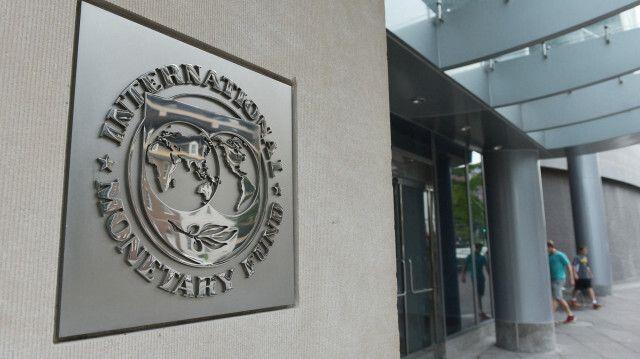
IMF Says Turkish Economic Policy Looks Promising As GDP Growth Expected
The International Monetary Fund (IMF) reported that the transformation in economic policies in Turkiye since mid-2023 has significantly reduced crisis risks and increased confidence by tightening the country's overall policy mix. The statement said, "In line with the policies announced by the authorities, IMF staff expect both GDP growth and inflation to decline this year and next."
The IMF delegation, led by James Walsh, visited Turkiye between May 29 and June 11 to conduct Article 4 consultations. Following the virtual follow-up meetings held on August 19 and 20, Walsh's statement included assessments of the Turkish economy.
The statement emphasized that the transformation in economic policies since mid-last year has tightened Turkey's general policy mix, significantly reducing crisis risks and increasing confidence.
The statement said that the current account deficit fell to 2.7 percent of Gross Domestic Product (GDP) in the first quarter of this year, market sentiment improved, and international reserves increased by $91 billion since April after deducting swaps and other liabilities.
The statement noted that international credit rating agencies
had raised Turkey's credit rating, and that the CDS risk premium
had fallen by approximately 440 basis points since mid-2023.
It was noted in the statement that headline inflation began to
decline in the summer months but remained high, and that the
financial and corporate sectors had weathered the policy tightening
without any visible stress so far.
Expectation of a decline in inflation and economic growth
"Based on the policies announced by the authorities, IMF staff
expect both GDP growth and inflation to decline this year and
next," the statement said.
It was stated in the statement that tight monetary and income
policies will suppress domestic demand and bring 2024 growth to
approximately 3.4 percent, and that inflation will be at 43 percent
by the end of the year.
The statement noted that the current account deficit would fall to
2.2 percent of GDP, and that growth would fall to 2.7 percent and
inflation to approximately 24 percent in 2025 as fiscal policy is
expected to become contractionary and real policy rates to remain
positive.
It was emphasized in the statement that further decline in inflation in the medium term would increase confidence and growth would return to its potential of 3.5-4 percent, that export growth would keep the current account deficit around 2 percent and that international reserves would remain above 100 percent of the IMF's reserve adequacy criterion.
The statement said that although the authorities' gradual approach to combating inflation aims to limit the impact on growth, it carries downside risks.
Pointing out risks that could derail inflation, such as rising global energy prices, geopolitical tensions stemming from the conflict in the Middle East or the war in Ukraine, or a reversal of capital flows, the statement emphasized that a more rapid re-establishment of inflation expectations would reduce these risks.
Emphasis on greater fiscal consolidation to reduce inflation
"A tighter policy mix focusing on fiscal policy will reduce risks
and reduce inflation more quickly and sustainably," the statement
said.
The statement noted that greater fiscal consolidation was needed to help reduce inflation, adding that rationalizing tax expenditures and broadening the tax base could be done relatively quickly, while limiting spending on non-essential capital projects would also help.
The statement noted that Turkiye's public debt is sustainable.
"Additional tightening may be required" warning
"The tight monetary policy stance will need to be maintained until
headline inflation and inflation expectations fall within the
CBRT's forecast range," the statement said, adding that financial
conditions will tighten as inflation expectations continue to fall,
but additional tightening may be necessary if sequential inflation
does not continue to fall on a path consistent with the end-2025
target range.
The statement pointed out that the inflation inertia, which is still high, needs to be addressed, and noted that determining prices, wages and other contracts, such as rent, annually and according to forward-looking inflation, is important to reset expectations and maintain competitiveness.
It was stated in the statement that maintaining financial stability will require continued attention and further reforms and that macroprudential policies should focus on limiting systemic risks.
Strengthening policy frameworks, addressing barriers to SMEs, improving the functioning of the labour market and accelerating the green transition will boost medium-term growth, the statement noted.
Walsh's statement also emphasized that Turkiye's removal from the Financial Action Task Force's (FATF) "Grey List" in June was a source of satisfaction.
Legal Disclaimer:
MENAFN provides the
information “as is” without warranty of any kind. We do not accept
any responsibility or liability for the accuracy, content, images,
videos, licenses, completeness, legality, or reliability of the information
contained in this article. If you have any complaints or copyright
issues related to this article, kindly contact the provider above.


















Comments
No comment